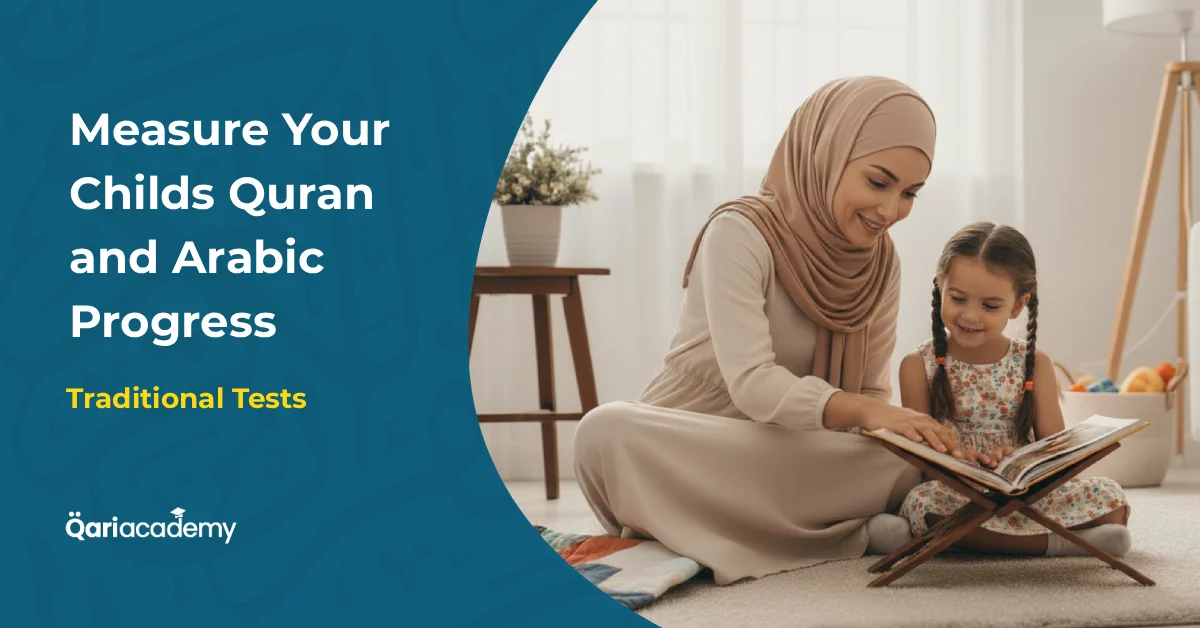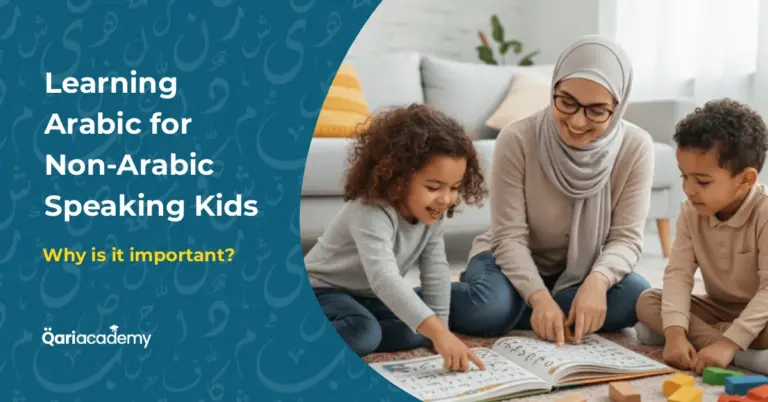
Introduction
For many parents, especially those raising children in the West, one of the biggest concerns is how to measure your childs Quran and Arabic progress without relying on stressful, traditional exams. While formal testing has its benefits, it often fails to show the full picture of a child’s development. Children may feel anxious, pressured, or discouraged by exams, sometimes leading them to dislike learning altogether.
The good news is that there are creative, stress-free, and highly practical ways to evaluate your child’s real progress in Quran and Arabic. By focusing on consistency, application, and teacher feedback, you can see meaningful growth without the pressure of formal tests. Below are five powerful methods parents can apply today.
1. Observe Daily Recitation and Conversation
Observation is one of the simplest yet most accurate ways to track progress. Listen to your child’s Quran recitation during review sessions or salah. Do they apply tajweed rules naturally? Do they recite with confidence and fluency? For Arabic, pay attention to whether they use new vocabulary in conversations at home.
Example: After learning the word “kitab” (book), see if your child uses it when asking for their school book. Such small daily cues reflect real retention and progress.
2. Track Consistency, Not Just Accuracy
Progress is not about perfection—it’s about consistent effort. Keep a simple chart or calendar where you mark how often your child reviews Quran or practices Arabic. Over weeks, you’ll see patterns that reveal more than exam scores ever could.
Example: Even if your child mispronounces words sometimes, but practices every day for 15 minutes, that steady routine will bring long-term fluency.
Many parents mistakenly focus only on mistakes, but true progress is built by consistency.
3. Use Real-Life Application
Children learn best when they apply knowledge in daily life. If your child memorized a surah, ask them to lead salah at home. If they learned new Arabic words, encourage them to use them while playing or talking with friends.
Example: If your child just learned “Al-Fatihah,” let them recite it as part of daily prayers. When they connect memorization to worship, learning becomes natural and purposeful.
This shows you not just what they know, but what they live.
4. Create Engaging Challenges and Activities
Instead of exams, design fun challenges that keep learning exciting:
- Ask your child to teach a younger sibling a new surah.
- Create a “Quran treasure hunt” where they find and recite verses about mercy or patience.
- Play Arabic vocabulary games like “Guess the Word” or memory cards.
- Let them record their own recitations and compare progress over weeks.
Such activities make learning enjoyable and give parents a clear view of progress. They also build confidence, responsibility, and communication skills.
5. Regular Feedback from Teachers
Teachers provide an outside perspective that parents might miss. Quran and Arabic teachers can identify subtle mistakes, strengths, and weaknesses. Build a partnership with your child’s teacher by scheduling regular check-ins.
Example: Ask your child’s teacher monthly:
- Is my child staying focused during class?
- Where has he/she improved most this month?
- What should we reinforce at home?
Teacher feedback, combined with your observations, creates a full picture of progress.
Common Mistakes Parents Make
While measuring progress, many parents fall into traps that slow their child’s development:
- Comparing siblings or classmates. Every child learns at a unique pace.
- Focusing only on memorization. Understanding meaning and applying rules matter just as much.
- Overloading with tests. This causes stress and reduces motivation.
- Ignoring small wins. Praising even small improvements builds confidence.
By avoiding these mistakes, you create a nurturing, growth-oriented environment.
Why This Matters
When you replace traditional exams with daily observation, fun challenges, and teacher feedback, you create an atmosphere of encouragement. Your child begins to see Quran and Arabic not as subjects they must pass, but as skills that enrich their daily lives. This mindset nurtures love for learning and ensures long-term success.
At QariAcademy, we specialize in helping parents measure their child’s Quran and Arabic progress using creative, non-traditional methods. Our interactive classes, consistent feedback, and personalized plans help children thrive without the stress of exams.
Start today by booking a free trial class at QariAcademy. Discover how our engaging methods help you measure your child’s Quran and Arabic progress with joy, not pressure.






